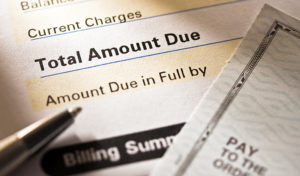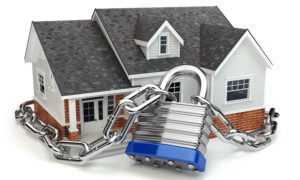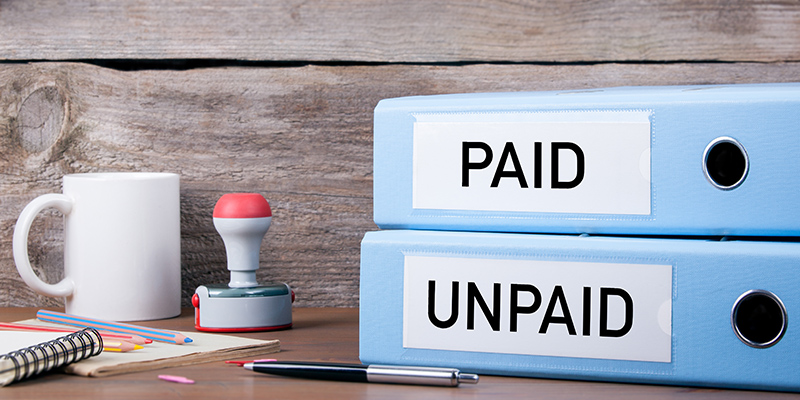An HOA collection policy is integral to the success of any homeowners association. Without such a policy in place, board members will find it difficult to collect past-due fees, thereby putting the association at risk of financial ruin.
What Is an HOA Collection Policy?
An HOA collection policy is simply an internal policy that a homeowners association uses to collect unpaid dues. In general, homeowners associations have the authority to collect fees from homeowners. When a homeowner fails to pay these fees, the HOA can take certain actions against the homeowner as indicated within the association’s governing documents.
Having a collection policy is important because it establishes the standard for collecting delinquent dues. With a policy in place, board members can treat every case in a consistent manner and avoid selective enforcement, which can cause more problems.
What to Include in an HOA Collection Policy
Not all homeowners associations are made equal. Therefore, HOA collection policies can differ from one association to another. Generally speaking, though, there are a few things that should come standard in every collection policy. When it comes to HOA collection policy requirements, every policy should outline the following:
- Determine when fees are due;
- Establish when fees are considered “delinquent”;
- Detail any fees that an HOA can charge against a delinquent owner;
- State the member’s right to dispute the delinquency (through internal or alternative dispute resolution);
- Describe the steps the HOA can take when attempting to collect unpaid dues; and,
- Identify any third-party service providers the HOA can hire when attempting to collect unpaid dues (collection agencies, lawyers, etc.).
It is worth noting that a written collection policy is not usually mandatory. Though, it is still well worth adopting a formal and written policy to keep things consistent. Even smaller associations, which are less likely to face delinquency issues, can benefit from establishing a written policy. In fact, it can hurt the association if it chooses to simply play it by ear when handling a delinquent account.
How to Collect Delinquent Dues and Assessments
A homeowners association’s collection policy should include the efforts it will undertake to settle unpaid fees. There are a number of methods an HOA can use, though they generally include the following:
1. Send an HOA Collection Notice
 A majority of homeowners associations start the collection process by sending a notice. This notice outlines the homeowner’s unpaid debt, the amount due, and the deadline for payment. More often than not, homeowners will receive this notice and settle their outstanding dues immediately. When they do that, the account does not turn delinquent.
A majority of homeowners associations start the collection process by sending a notice. This notice outlines the homeowner’s unpaid debt, the amount due, and the deadline for payment. More often than not, homeowners will receive this notice and settle their outstanding dues immediately. When they do that, the account does not turn delinquent.
However, if a homeowner fails to settle their unpaid dues after this, most HOAs then send a Notice of Delinquency. This notice also includes the amount due and informs the owner of the collection actions the association will take should the debt remain outstanding.
2. Charge a Late Fee
Sometimes, charging a late fee on top of the unpaid dues is enough to get delinquent homeowners back in good standing. If an HOA wishes to charge a late fee, though, it should include this detail as well as the amount of the fee in the HOA collection letter.
Keep in mind that not all homeowners associations can charge late fees, fines, or interest. This authority comes from the association’s governing documents or state laws. Additionally, most associations are restricted by a maximum amount of interest rate. For instance, North Carolina law puts the statutory interest rate limit at 18%.
3. Refer It to a Third Party
In some cases, homeowners associations don’t have the resources to collect delinquent dues on their own. This is where a third-party service can come in handy. Typically, HOAs can refer the delinquent accounts to a collection agency. Though, it can also seek assistance from a lawyer.
Collection agencies typically charge an HOA collection cost, which can take the form of a percentage of the amount collected or a fixed fee. Should an association take this route, it can charge the collection costs and attorney’s fees to the delinquent homeowner as well, provided state laws and the HOA’s governing documents allow it.
Homeowners associations should choose their collection agencies carefully. Keep in mind that collection agencies and their practices are governed by the federal Fair Debt Collection Practices Act. Under the eyes of the law, unpaid dues are considered debts, and homeowners are considered consumers. Homeowners associations, though, are generally not recognized as debt collectors.
4. Offer a Payment Plan
Payment plans are a great way to collect delinquent dues while reducing the financial burden on homeowners. A payment plan essentially divides the total amount due into installments, which are much easier to pay off than in one lump sum.
In some states, like Colorado, it is mandatory for HOAs to offer payment plans before proceeding with other collection efforts. But, if an owner has previously entered into a payment plan, Colorado law does not require HOAs to offer it again. This is generally a good rule to apply to your collection policy as it eliminates the possibility of homeowners abusing payment plans.
5. Attach a Lien
 Liens automatically attach to a property when the homeowner becomes delinquent. But, associations can perfect a lien by recording the notice of the lien in the county’s land records. This will make the lien visible to anyone who conducts a title search on the property. While liens themselves don’t hinder a homeowner, they can make it difficult to sell a home or refinance a mortgage.
Liens automatically attach to a property when the homeowner becomes delinquent. But, associations can perfect a lien by recording the notice of the lien in the county’s land records. This will make the lien visible to anyone who conducts a title search on the property. While liens themselves don’t hinder a homeowner, they can make it difficult to sell a home or refinance a mortgage.
Once a delinquent owner settles their debt, the HOA must release the lien by recording it in the county’s land records. Exactly how long an association has to file this lien release following payment will depend on the state, though it typically plays between 20 to 30 days. Recording a lien release will usually come with a fee, which the association can charge to the homeowner if the governing documents and state laws permit it.
6. Foreclose
If an association wishes to secure payment after attaching a lien to the property, it can initiate foreclosure proceedings. There are some pre-foreclosure requirements that HOAs must adhere to, though these can vary from state to state. In general, this includes providing advance notice of foreclosure to the delinquent homeowner.
Most states require associations to foreclose judicially. This will involve filing a civil suit and asking a court to order a sale of the property. An authorized official will perform the sale, and the proceeds from the sale can then be used to satisfy the lien. A few states allow HOAs to conduct non-judicial foreclosures. In this case, instead of a court, a trustee will perform the sale.
A Policy That Works
A high delinquency rate is a problem that many homeowners associations encounter. To minimize delinquencies, it is imperative for every community to enact a standard HOA collection policy. Moreover, having it in writing can greatly help reduce misunderstandings within the association and allow the board to enforce the collection rules in a professional, effective, and uniform manner.
If your board is having a hard time collecting unpaid dues, Clark Simson Miller is your best bet. Call us today at 865.315.7505 or contact us online to learn more about our services.
RELATED ARTICLES:
- Can Delinquent Owners Voting Rights Be Revoked?
- How Should The Board Deal With Delinquent HOA Dues
- What Is HOA Bad Debt? Is Exposing HOA Debtors Legal?

